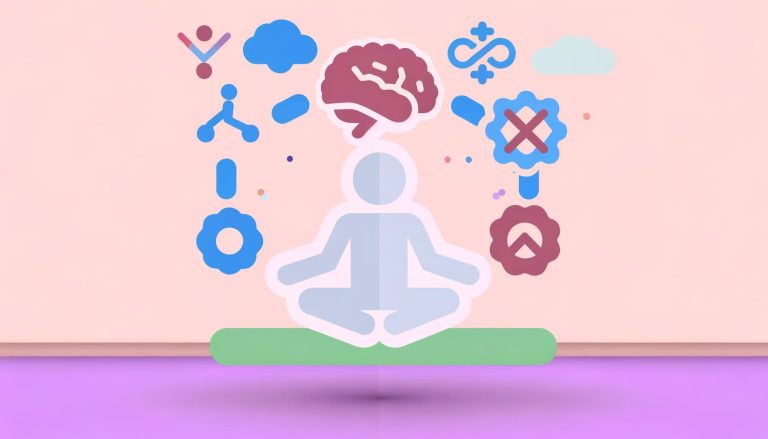Managing chronic illness is a complex and ongoing journey that requires a comprehensive approach. While modern medicine provides various treatments, many individuals seek complementary therapies to enhance their well-being. One such powerful, yet often underappreciated tool is meditation. Whether you’re living with chronic pain, autoimmune disorders, or other long-term health conditions, meditation offers a myriad of benefits. Let’s explore how meditation can improve quality of life for those with chronic illnesses and how to integrate it into your routine.
Introduction
Chronic illnesses affect millions of people worldwide, causing persistent discomfort and requiring long-term management strategies. Conventional treatments are vital, yet integrating holistic practices, such as meditation, can significantly enhance overall health. This ancient practice, rooted in mindfulness and relaxation, can help manage symptoms, reduce stress, and improve emotional well-being.
Understanding Chronic Illness
Chronic illnesses are conditions that last for a year or more and necessitate ongoing medical attention or limit activities of daily living. Common examples include:
- Diabetes
- Arthritis
- Heart Disease
- Chronic Pain
- Autoimmune Disorders
The burden of chronic illness often extends beyond physical symptoms, impacting mental health due to stress, anxiety, and depression. Here’s where meditation steps in as a beneficial complementary practice.
Types of Meditation
Before diving into the benefits, it’s essential to understand different meditation techniques:
- Mindfulness Meditation: Focuses on being present in the moment without judgment.
- Transcendental Meditation: Involves chanting a mantra to achieve a state of relaxed awareness.
- Guided Meditation: Utilizes visualizations and guidance from a teacher or pre-recorded session.
- Body Scan Meditation: Focuses attention on different parts of the body to release tension.
- Loving-Kindness Meditation: Cultivates feelings of compassion and love towards oneself and others.
Meditation offers numerous benefits for managing chronic illness symptoms and enhancing quality of life. Here are some key advantages:
Reduction of Stress and Anxiety
Chronic illnesses often trigger stress and anxiety, exacerbating symptoms. Meditation promotes relaxation by activating the parasympathetic nervous system. This practice helps lower cortisol levels, the stress hormone, leading to a calmer mind and reduced anxiety.
Pain Management
Mindfulness meditation is particularly effective in managing chronic pain. By focusing attention on the breath and bodily sensations, individuals can reduce their perception of pain and develop a more accepting attitude towards discomfort. This shift in perspective can significantly decrease the intensity of pain experienced.
Improved Emotional Well-being
Living with a chronic illness can take a toll on mental health. Meditation encourages emotional regulation by increasing self-awareness and fostering an attitude of acceptance. This can reduce symptoms of depression, boost mood, and instill a sense of inner peace.
Enhanced Immune Function
Studies show that regular meditation can positively impact the immune system. By reducing stress and promoting relaxation, meditation supports bodily functions and may enhance the body’s ability to fight infections and disease.
Better Sleep Quality
Chronic conditions often disrupt sleep due to pain or stress. Meditation techniques such as guided visualization and progressive muscle relaxation can improve sleep quality by calming the mind and releasing physical tension.
Lower Blood Pressure
For those with conditions like hypertension, meditation can be particularly beneficial. Regular practice helps reduce blood pressure by promoting relaxation and reducing the impact of stress on the cardiovascular system.
Practical Tips for Integrating Meditation
Starting a meditation practice can seem daunting, but it doesn’t have to be complicated. Here are some practical tips to get started:
1. Start Small
Begin with just 5-10 minutes a day and gradually increase your practice duration as you become more comfortable.
2. Choose a Comfortable Space
Find a quiet, comfortable place where you can sit or lie down without distractions. Consistency in location can help in forming a habit.
3. Use Guided Meditations
If you’re new to meditation, guided sessions can be incredibly helpful. There are numerous apps and online resources available to assist you.
4. Focus on Breathing
Pay attention to your breath as it rises and falls. Deep, slow breathing can help anchor your attention and promote relaxation.
5. Be Patient with Yourself
Meditation is a practice that develops over time. It’s normal to have a wandering mind; gently bring your focus back to your breath without judgment.
6. Incorporate Mindfulness into Daily Activities
You don’t have to be sitting still to practice mindfulness. Try being present and mindful while doing routine activities like eating, walking, or even showering.
Conclusion
Managing a chronic illness can be challenging, but integrating meditation into your life offers a powerful tool to improve physical and mental well-being. From reducing stress and managing pain to enhancing emotional health and improving sleep, the benefits of meditation are profound. Start with small, consistent steps, and gradually build your practice to harness the full potential of this ancient practice.
Remember to consult with healthcare professionals about incorporating new practices into your routine to ensure they complement your existing treatment plan effectively.
Sources:


